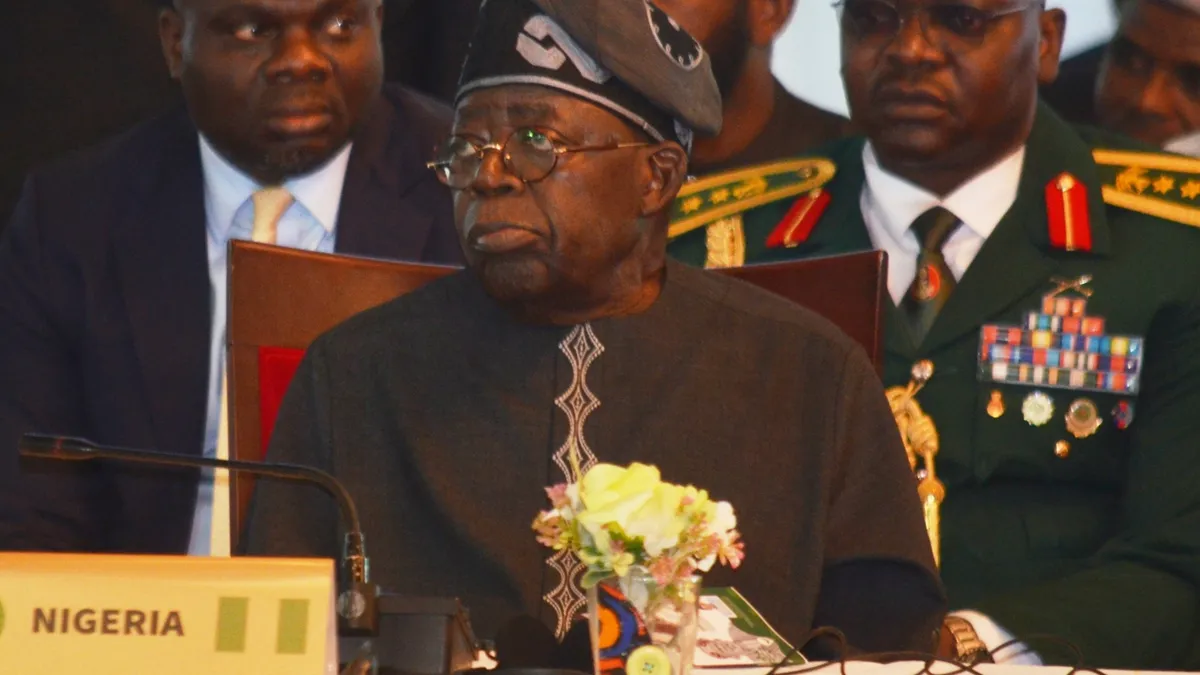
ABUJA, Nigeria — In a significant escalation of rhetoric, U.S. President Donald Trump announced on Saturday that he has directed the Pentagon to initiate planning for potential military action in Nigeria. This decision comes as he intensifies his claims that the Nigerian government is failing to address the ongoing persecution of Christians in the West African nation. Trump further warned that if the Nigerian government does not take action to protect Christians, the United States will immediately halt all aid and assistance to Nigeria.
In a statement shared on social media, Trump emphasized, “If the Nigerian Government continues to allow the killing of Christians, the U.S.A. will immediately stop all aid and assistance to Nigeria, and may very well go into that now disgraced country, 'guns-a-blazing,' to completely wipe out the Islamic terrorists who are committing these horrible atrocities." He added, "I am hereby instructing our Department of War to prepare for possible action. If we attack, it will be fast, vicious, and sweet, just like the terrorist thugs attack our cherished Christians!”
This warning from Trump followed a statement by Nigeria's President Bola Ahmed Tinubu, who pushed back against the U.S. leader's claims. In a social media post earlier that day, Tinubu asserted that characterizing Nigeria as a religiously intolerant country does not reflect the reality on the ground. He stated, “Religious freedom and tolerance have been a core tenet of our collective identity and shall always remain so. Nigeria opposes religious persecution and does not encourage it. We have constitutional guarantees to protect citizens of all faiths.”
Trump's comments came on the heels of a call from U.S. Senator Ted Cruz urging Congress to designate Nigeria as a violator of religious freedom, citing claims of mass murder against Christians. Nigeria, with a population of approximately 220 million, is nearly evenly divided between Christians and Muslims, leading to a complex socio-religious landscape.
The country has been grappling with various forms of insecurity, including threats from the Boko Haram extremist group, which aims to impose its radical interpretation of Islamic law and has also targeted Muslims it considers insufficiently devout. The motives behind attacks in Nigeria are multifaceted, encompassing religious tensions, clashes between farmers and herders over scarce resources, communal rivalries, and ethnic conflicts. While Christians are often highlighted as victims, analysts note that a significant number of casualties involve Muslims, particularly in Nigeria's predominantly Muslim northern regions.
Kimiebi Ebienfa, a spokesperson for the Nigerian Ministry of Foreign Affairs, reaffirmed the government's commitment to protecting citizens of all faiths. “The Federal Government of Nigeria will continue to defend all citizens, irrespective of race, creed, or religion,” Ebienfa stated in a press release on Saturday. “Like America, Nigeria has no option but to celebrate the diversity that is our greatest strength.”
Nigeria was first placed on the U.S. list of countries of particular concern in 2020, citing systematic violations of religious freedom. This designation, which did not specifically address attacks on Christians, was lifted in 2023, a move interpreted by observers as an effort to enhance diplomatic relations between the two nations ahead of then-Secretary of State Antony Blinken's visit.
The ongoing dialogue around religious freedom and security in Nigeria remains a critical issue, as both the U.S. and Nigerian governments navigate the complexities of their bilateral relationship amidst rising tensions.